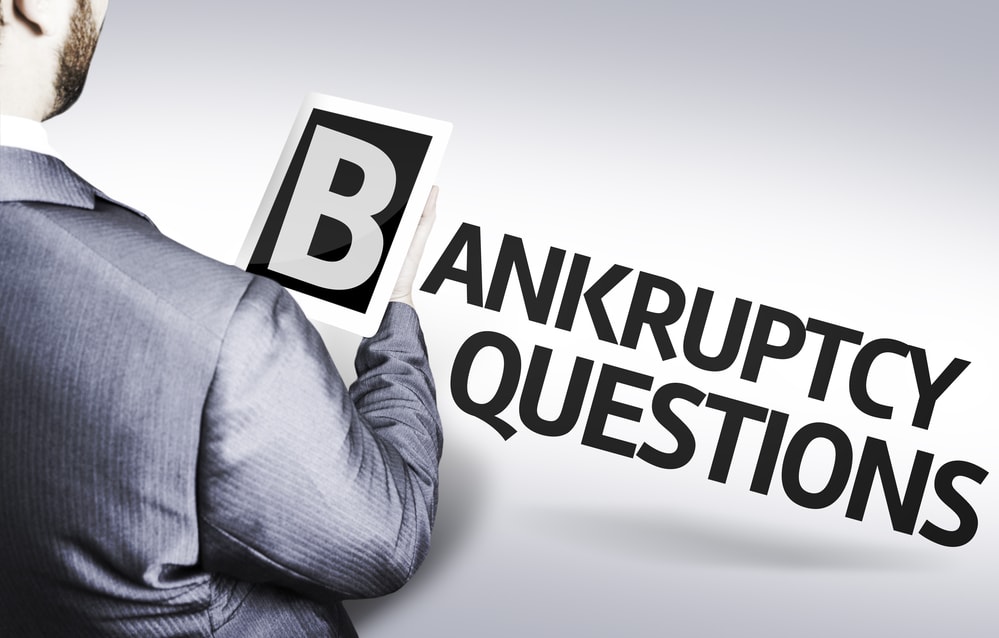Are You Struggling Financially And Considering Bankruptcy?
Many people who are struggling financially and overwhelmed by debt are often not sure where to turn for help. One option, which is often the best option, is bankruptcy. In contemplating whether to file for bankruptcy in New York, we strongly recommend consulting with an experienced bankruptcy attorney. They will review a debtor’s legal options, explain the bankruptcy process, evaluate their case to see if there are any potential issues and review their budget. Filing for bankruptcy can be quite complicated and at times intimidating, so it is a good investment to have a strong advocate by your side. It can also be risky to file without an experienced bankruptcy attorney.
There are numerous benefits to filing bankruptcy, including protection from creditors and the ability to discharge debts as set forth by the Bankruptcy Code. The two main forms of bankruptcy for consumer debtors are Chapter 7 and Chapter 13 Bankruptcy. A Chapter 7 Bankruptcy, eliminates dischargeable debts and gives a debtor a fast, fresh start. A Chapter 13 Bankruptcy, enables a debtor to pay back their debts over a 36 to 60 month payment plan. Chapter 13 Bankruptcy is often used by homeowners facing foreclosure to catch up on their past due mortgage payments. It should be noted that a debtor must qualify to file for Chapter 7 Bankruptcy. Depending on their household size and income, a debtor may be subject to the Means Test, a budget test which may restrict them to filing for Chapter 13 bankruptcy. In a Chapter 13 Bankruptcy, the debtor must propose a feasible payment plan which must be approved by the judge assigned to the case.
Should You File For Bankruptcy?
Prior to moving forward with a bankruptcy filing, a debtor should review their assets and liabilities. They should calculate their typical monthly net income and add up their reasonable monthly living expenses and debt obligations. Obtaining a credit report can be a helpful way to get an organized snapshot of a one’s debts. Once the debtor has a summary of their debts and obligations, they will then be able to determine if they have a monthly budget surplus or shortfall of income, without borrowing or obtaining more money from available sources. If the debtor is only paying their creditor’s minimum monthly payments, that is a clear sign of a potential financial problem. Collection letters and creditor calls are an even more glaring sign of financial difficulty.
Should You Use An Attorney to File Bankruptcy?
Proceeding with a bankruptcy filing without being represented by an attorney is referred to as filing “pro se”. Filing for personal bankruptcy under Chapter 7 or Chapter 13 requires careful preparation and an understanding of various legal codes and issues. Hiring a lawyer to represent you with respect to your potential bankruptcy case has many advantages. An attorney can do many things for a debtor contemplating bankruptcy, such as:
- Explain the bankruptcy process;
- Advise on whether or not to file a bankruptcy petition;
- Advise on which chapter to file under;
- Advise on the timing of the bankruptcy filing;
- Advise on which district to file the bankruptcy petition;
- Advise on whether certain debts can be discharged;
- Review which assets may be exempt and what legal exemptions can be claimed. For example, whether or not the debtor can protect their home, car, or other property after filing;
- Advise whether to continue to pay certain creditors;
- Advise the debtor whether they are subject to Mean Test and if necessary, perform the Means Test calculations. The Means Test can be quite complicated and if done incorrectly, could subject the case to dismissal or require it be converted to a Chapter 13 Bankruptcy;
- Review any potential issues, such as, improper transfers, payments preferences to creditors, friends or family;
- Complete the numerous forms and schedules and file them with the Court;
- Represent the debtor in Bankruptcy Court.
There are a number of services that a debtor can potentially use to help them prepare a pro se filing. However, non-attorney bankruptcy petition preparers are restricted from giving legal advice to debtors. They can only help debtors complete the forms necessary to file. Another option for the preparation of a bankruptcy petition are software packages and cloud-based systems that are available online. The companies that offer these products often guarantee that the forms will be accepted by the Court in your jurisdiction, however they cannot guarantee the outcome of a case. Some of these packages even offer a “guaranteed discharge,” but what that means is that if the debtor does not receive a discharge, they may be able to get their money back. Even an experienced bankruptcy attorney cannot guarantee a discharge in any given case. A few hundred dollars will be cold comfort to someone who may face losing a valuable asset like their home. If a pro se debtor is trying to protect their home in a bankruptcy, neither petition preparers nor petition preparation software can provide legal advice on asset exemption. Furthermore, a debtor cannot show up at Court and expect to receive free legal advice. Court employees are prohibited from offering legal advice to pro se debtors.
What Is The Bankruptcy Process?
Once the decision to file for bankruptcy has been made, the process of gathering the necessary documents and drafting the petition and schedules begins. The debtor must file a bankruptcy petition, schedules and creditor matrix with the Court. Together these documents total, on average, 50 to 60 pages. The petition itself reflects: who you are, where you live, what you owe, what assets you have, whether those assets are exempt and protected from creditors, your budget, and other financial details. Along with filing a petition, a filing fee must be paid, $335 for a Chapter 7 case and $310 for a Chapter 13 case. Additionally, prior to filing a bankruptcy petition, a debtor is required to complete a credit counseling course approved by the Justice department unless they fit into a few very narrow exceptions in the Bankruptcy Code. The certificate of completion must be filed along with the petition. After the case is filed, a second debtor education course must be taken in order to receive a discharge at the end of the case.
There are numerous forms and schedules that must be filed with the Bankruptcy Court:
- Voluntary Petition for Individuals Filing for Bankruptcy (Official Form 101)
- Filing Fee or use Application for Individuals to Pay the Filing Fee in Installments (Official Form 103A), or Application to Have the Chapter 7 Filing Fee Waived (Official Form 103B).
- Statement About Your Social Security Numbers (Official Form 121)
- Creditor matrix, a list of names and addresses of all of your creditors, formatted as a mailing list
- Your credit counseling certificate from an approved credit counseling agency.
- Initial Statement About an Eviction Judgment Against You (Official Form 101A) and Statement About Payment of an Eviction Judgment Against You (Official Form 101B).
- Bankruptcy Petition Preparer’s Notice, Declaration, and Signature (Official Form 119) and Disclosure of Compensation of Bankruptcy Petition Preparer (Form 2800).
Some documents must be filed within 14 days of filing the petition:
- Schedules of Assets and Liabilities (Official Form 106) which includes these forms:
- Schedule A/B: Property (Official Form 106A/B)
- Schedule C: The Property You Claim as Exempt (Official Form 106C)
- Schedule D: Creditors Who Have Claims Secured by Your Property (Official Form
- 106D)
- Schedule E/F: Creditors Who Have Unsecured Claims (Official Form 106E/F)
- Schedule G: Executory Contracts and Unexpired Leases (Official Form 106G)
- Schedule H: Your Codebtors (Official Form 106H)
- Schedule I: Your Income (Official Form 106I)
- Schedule J: Your Expenses (Official Form 106J)
- Statement of Financial Affairs (Official Form 107)
- Declaration About an Individual Debtor’s Schedules (Official Form 106Dec)
- Summary of Your Assets and Liabilities and Certain Statistical Information (Official Form 106Sum)
Those debtors filing Chapter 7 must also file:
- Statement of Intention for Individuals Filing Under Chapter 7 (Official Form 108)
- Current Monthly Income (Official Form 122A-1)
- If the debtor is subject to the Means Test, Chapter 7 Means Test Calculation (Form 122A-2)
Those debtors filing Chapter 13 must also file:
- Statement of Your Current Monthly Income and Calculation of Commitment Period (Official Form B 122C-1)
- Chapter 13 Calculation of Your Disposable Income (Official Form B 122C-2)
- Chapter 13 Plan (Official Form B 113), although local rules may require a different form.
Although the rules allow a debtor to file some schedules and forms after the filing of the petition, unless it is an emergency filing, we recommend filing all the documents with the Court upon the filing of the petition.
Once the required documents are filed and the filing fee is paid, the case is opened and a trustee is assigned to the case. The debtor will then receive proof of the filing with a case number. This proof can be used to stop a foreclosure sale, unfreeze a bank account or stop a garnishment. Simultaneous with the filing or shortly thereafter, the debtor will be notified about a hearing, called a “341 meeting.” The hearing will usually be scheduled within 4 to 6 weeks after the filing the petition. Prior to the 341 meeting, the debtor must provide all relevant documentation to the trustee. For example, the debtor must typically provide the Trustee with a copy of their petition and schedules, their certificate of completion of the credit counseling course, their last 60 days of paystubs, their most recent tax return, ownership information regarding any real estate or vehicles, as well as documentation of any related mortgages or loans. Please note, a trustee may request additional documentation beyond those listed above, such as proof of identity and social security number, bank statements or additional tax returns.
The 341 meeting itself can be intimidating. At the 341 meeting, the debtor will be examined by the trustee assigned to the case and testify under oath as to the facts surrounding the filing. Creditors may appear to ask questions of the debtor, although typically, they do not. Depending upon the testimony given, the trustee may request additional documentation from the debtor or may require that the petition amended. A pro se debtor appears at the hearing alone. The Trustee cannot give the debtor any legal advice at Court. Those debtors who are represented by an attorney will appear with their attorney at the hearing and their attorney will typically prepare them for the questions the Trustee will potentially ask them.
A Chapter 13 case is even more complicated. The debtor is required in those cases to appear at a 341 meeting and also for a Confirmation hearing before the judge in the case. It should be noted that the debtor’s appearance at the Confirmation hearing may be waived by the Court. The case will be confirmed provided that the Chapter 13 plan is feasible and approved by the Judge. Typically, confirmation also requires the consent of the trustee assigned to the case. A debtor should take the complexity of the bankruptcy process and its requirements into account when choosing whether to hire an attorney to aid them in filing for bankruptcy.
Filing Bankruptcy Pro Se
While a debtor is not required to hire an attorney when filing for bankruptcy, those who do file pro se, typically do so at their own peril. A Chapter 7 case cannot be withdrawn without the permission of the Court. If the debtor filed with a non-exempt asset, such as a house with equity above the exemption limit, the Trustee will most likely pursue liquidation of it. If they debtor is unable to settle with the trustee, then the trustee will seek to sell the asset in order to pay the claims of the creditors in the case. We have seen many pro se debtors appear in Court over the years and we have seen their cases go awry. When filing for bankruptcy, a debtor is expected to be familiar with not just the United States Bankruptcy Code and Federal Bankruptcy Forms, but also the Federal Rules of Bankruptcy Procedure, any relevant state law and the local rules of the Court in which the case is filed. If you are contemplating filing for bankruptcy without an attorney, we recommend consulting with an experienced bankruptcy attorney first.
Common Pro Se Pitfalls
Can I file bankruptcy without a lawyer? Misunderstandings of the law or making mistakes in the bankruptcy process can affect the debtor’s rights and property. Ignorance of the law cannot be used as an excuse or defense. Furthermore, a Chapter 7 bankruptcy case cannot be withdrawn without permission of the Court. It is unlikely that such permission will be given if there is equity in an asset that can be used to pay creditors. As mentioned earlier, pro se debtors cannot rely on bankruptcy petition preparers, bankruptcy software, or Court employees for legal advice that could be used to avoid unexpected issues in a bankruptcy case.
There are four common issues that may arise from filing bankruptcy filing without a lawyer. The first issue involves exemptions issues where the debtor files a bankruptcy petition without claiming proper exemptions or with equity in a non-exempt asset. In these cases, the trustee will have the right to liquidate the asset in order to pay the claims filed by creditors in the case. Some assets that are often pursued by a bankruptcy trustee include: equity in a house, a vehicle, a pending tax refund, cash in the bank, an interest in an inheritance or lawsuit, or some other type of property not protected by an exemption. This can be particularly tragic, for example, if a debtor loses a home in the bankruptcy process. The second issue involves improper transfer and preference issues, where the trustee can pursue money or property given to family members, friends, creditors or others prior to filing. In these cases, a trustee can pursue the money or property that was improperly paid or transferred. The next issue involves issues that arise at the 341 meeting. If the trustee makes demands for additional documentation or the petition requires amendments, the debtor may be become overwhelmed and be unsure how to comply. This can lead to the case being held open and may result in a motion for dismissal and potentially a denial of discharge. The next issue involves overly aggressive budgets. If the Trustee or U.S. Trustee believes that the debtor has disposable income in their budget that is enough to fund a Chapter 13 plan, they may make a motion to covert the case. The final issue that commonly arises for pro se debtors are Means Test issues. If the trustee contests the debtor’s Means Test calculations, they may refer the case to the U.S. Trustee. In addition, the U.S. Trustee may review cases for Mean Test issues without any prompting from the bankruptcy trustee. They may seek convert to the debtor’s case to a Chapter 13 bankruptcy or even seek to prevent the debtor from receiving a discharge. These last two issues show why properly calculating the Means Test and preparing the debtor’s household budget are critical to a successful bankruptcy case. As you can see, there are many reasons why a pro se bankruptcy filing can have unintended or unanticipated negative consequences for the debtor.
Contact The Law Offices of David I Pankin, PC
If you are considering filing for bankruptcy pro se, you should consider consulting with an experienced bankruptcy attorney before you do so. For over 20 years, the Law Offices of David I Pankin, PC has been representing debtors in bankruptcy in Long Island, NYC, Brooklyn, Queens, Staten Island and the Bronx. We offer a free consultation, as well as easy payment plans for our legal fee. If you would like to contact our offices, you can do so at 888-529-9600 or by using our easy online contact form.
Click Here for more information about the Means test
Click Here for Approved Credit Counseling Agencies
Click Here for Bankruptcy Forms (Please check your district’s Bankruptcy Court for any local forms)
The Justice Department’s Means Test
The Bankruptcy Court Websites of the Eastern and Southern Districts of New York:






